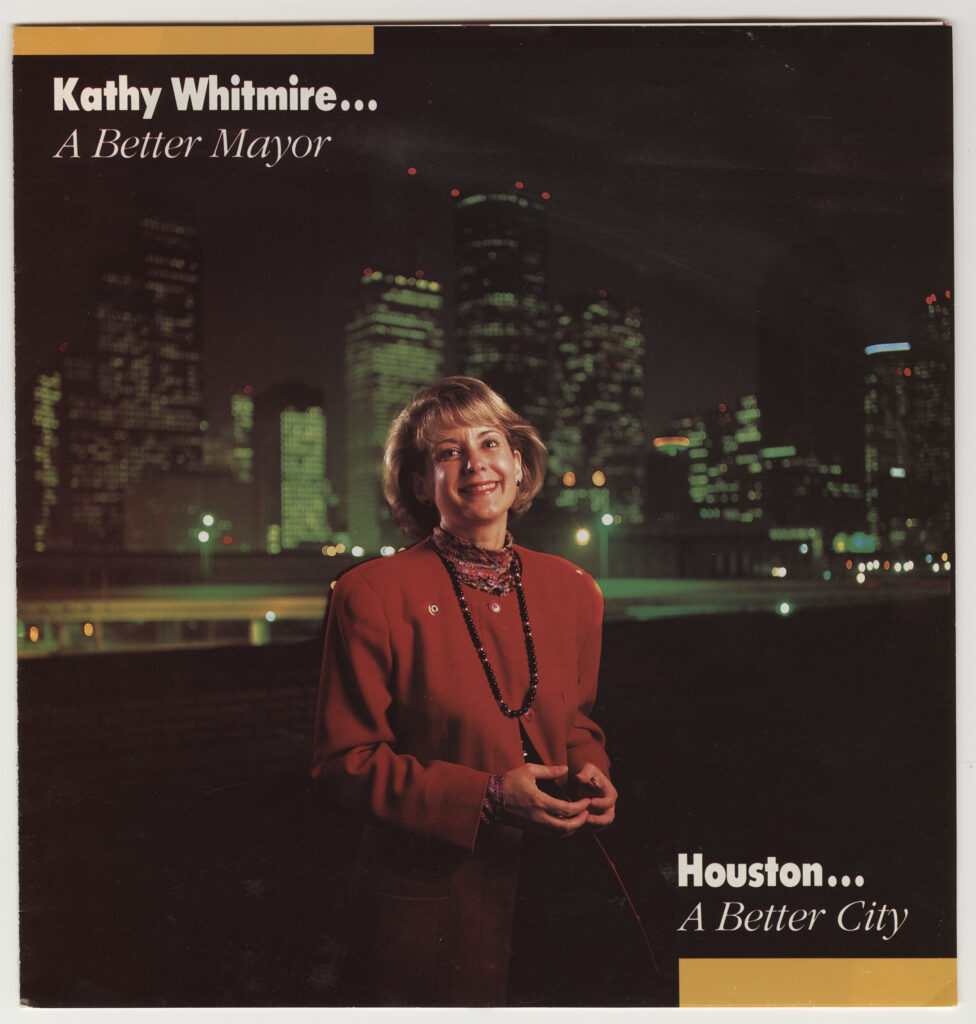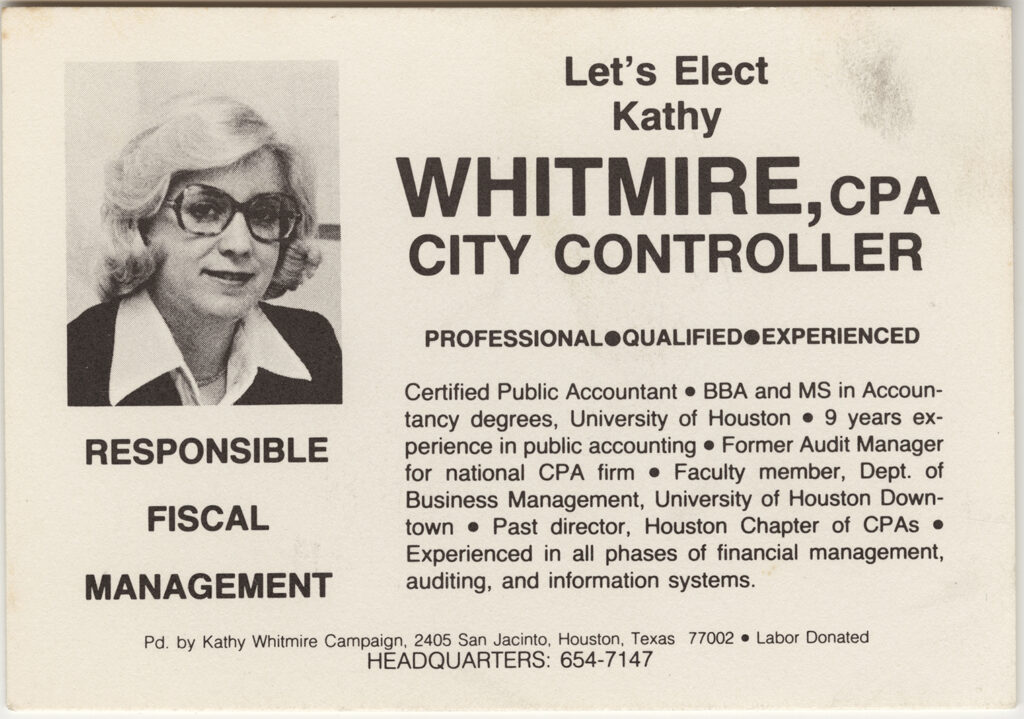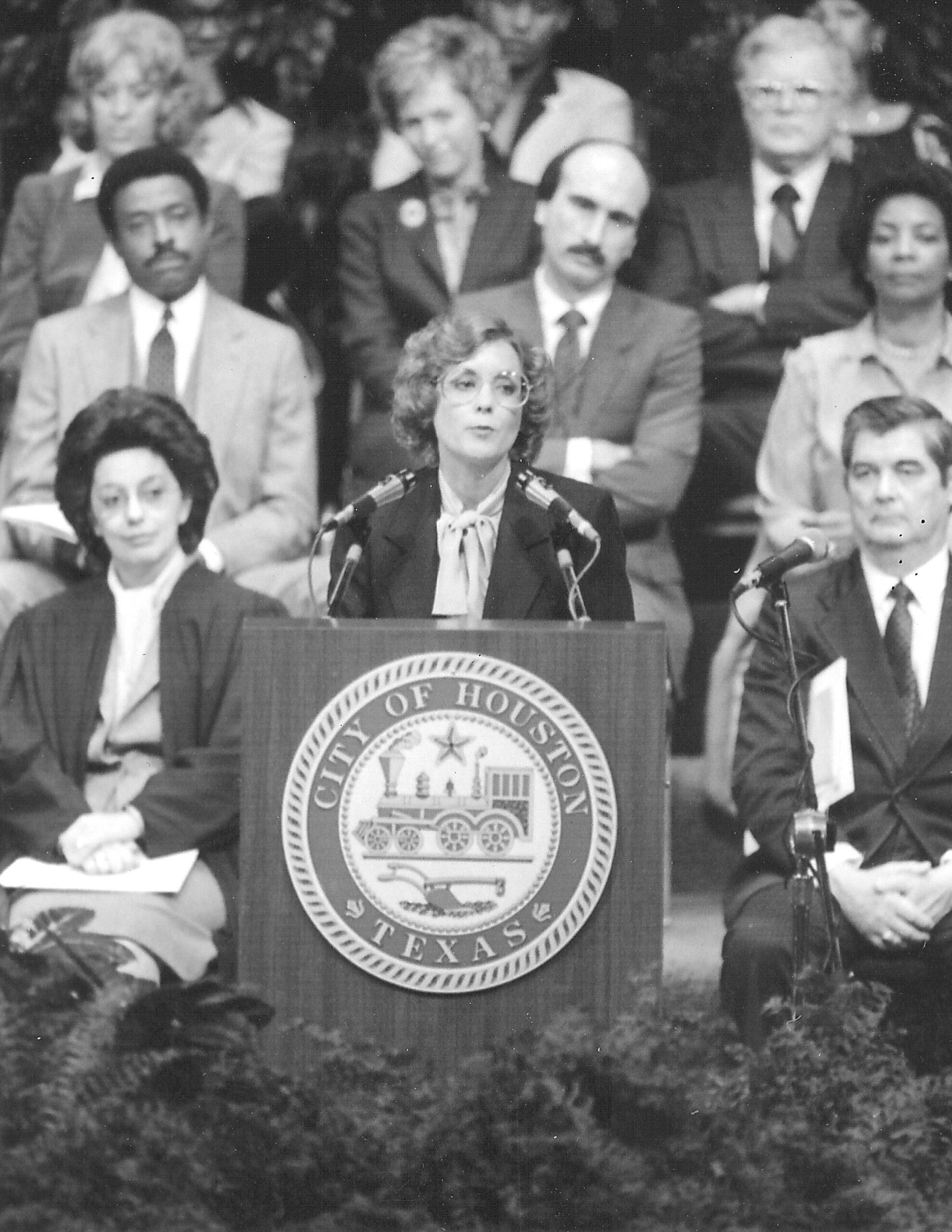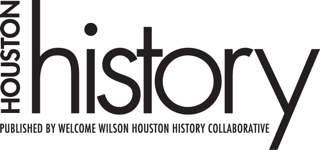By Cameron Thompson

Kathy Whitmire brought many firsts to Houston during her rapid rise in local politics. A native Houstonian, she spent her childhood in Huntsville and Houston, attending Berry Elementary School and Marshall Junior High in Northeast Houston, before graduating from San Jacinto High School. Acknowledging her keen interest in politics in her youth, Whitmire’s path towards a political career began at the University of Houston (UH), where she received her bachelor’s in business administration and master’s in accountancy, and where she met her husband, Jim. After a few years in local activism and working as a certified public accountant (CPA), she launched her fourteen-year political career with her election as city controller in 1977. By the time she departed elected office in 1991, after five two-year terms as mayor, she had led Houston through multiple decade-defining crises, while spearheading reforms in city government and leadership.
UH history major Cameron Thompson met with Kathy Whitmire via Zoom on October 29, 2022, for the UH Center for Public History’s 100 Years of Stories: Documenting a Century at the University of Houston project. What follows are excerpts from their conversation.
Cameron Thompson: What made you decide to major in business at UH?
Kathy Whitmire: My very first semester that I was there, I had already decided on accounting. And that had to do with the way things were in those years; [1964-65 was] my freshman year, and opportunities for women were really not what they are today. …
I didn’t know exactly how things would open up for women. I was not involved in the women’s movement at that point, which became a very big force in my life later. I had a math teacher who I liked very much, and she helped me in developing my interest in math. But I thought, “Why is she teaching?” It’s because she didn’t have any other job opportunities, and … that wasn’t something I wanted to do.
I looked for a way that I could get involved in something that I enjoyed, and I was interested in business, and in the financial side of business. That’s why I took that path, and it ended up being the right one for me. … My first semester, I took a job on campus … It didn’t pay very much, … but every job I’ve ever had has taught me a lot. … [Working as a temporary employee in several offices that summer] gave me the opportunity to focus on what I could do, and how I could use my accounting degree and what the opportunities would be. … [I] learned about specific kinds of businesses that existed in Houston — everything from a mortgage company to an oil company to a company that manages the ships in the ship channel. I started in my sophomore year taking all my classes at night, so that I could take those jobs in the daytime. …
There was one night that the professor didn’t show up, and we were all sitting around waiting for our next class. That was when I met my husband, Jim Whitmire. He was doing what I was, working a day job and going to school at night, majoring in economics in the College of Business Administration. We started dating, and five months later, we got married. That was the next part of my extracurricular activities, starting a home with Jim, and the two of us working, finishing our [degrees], and then deciding what to do next. …

CT: When and how did you get involved with the women’s movement?
KW: [In] 1973, there was a national conference that was held in Houston for the National Women’s Political Caucus, and by that time, my husband and I were both involved in campaigns. … My husband was getting ready to run for city council that year. … [I]n January, he saw something in the newspaper about the National Women’s Political Caucus holding its first national convention … in Houston at the Rice Hotel, [and he said], “You should go to this.” …
The Harris County Women’s Political Caucus had not existed before the national group [held the] convention. They organize[d] a caucus at that time, I signed up…, and within a few weeks, … we were having a meeting of local women who wanted to get something done in politics. That became a big part of my life. … I always assumed I would be a politician’s wife, and I did do that. But it was that turning point in 1973 that caused me to realize … that I could also run for office.

To read the full article, click here or on Buy Magazines above to subscribe or order a print copy.
To listen to an oral history conducted by Jim Barlow with Kathy Whitmire in 2008, click here.


 Follow
Follow